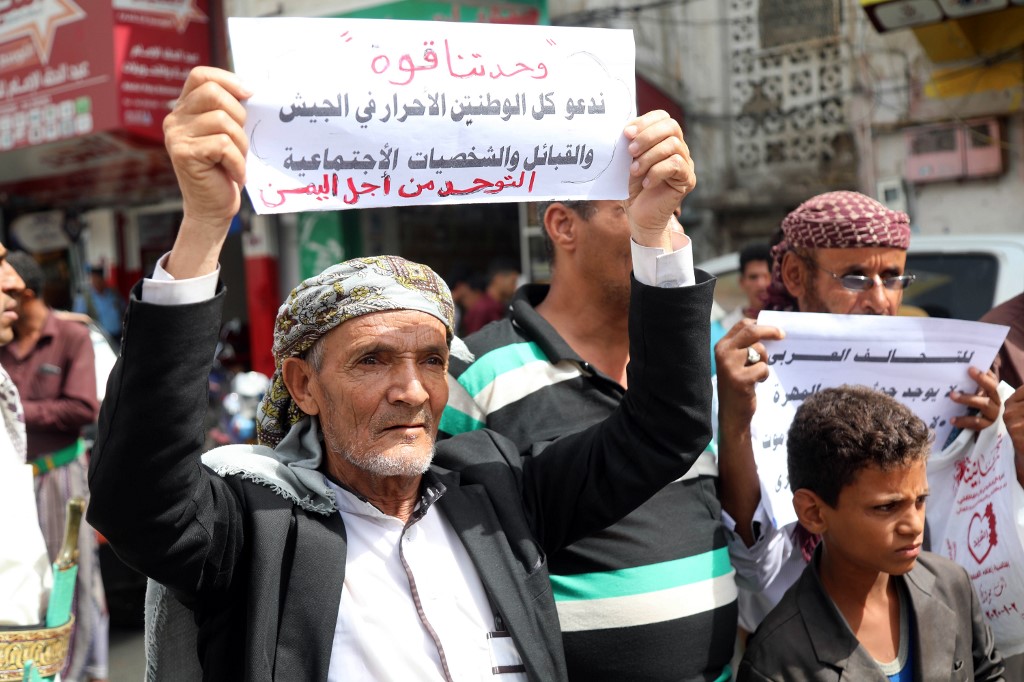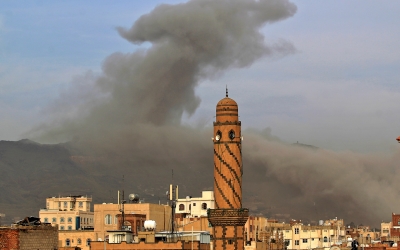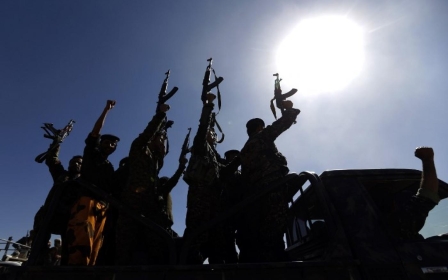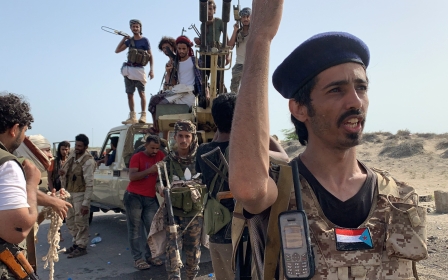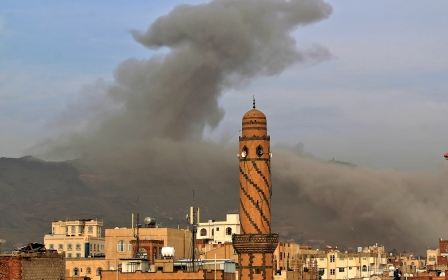Yemen's STC separatists expel northerners from Socotra following takeover
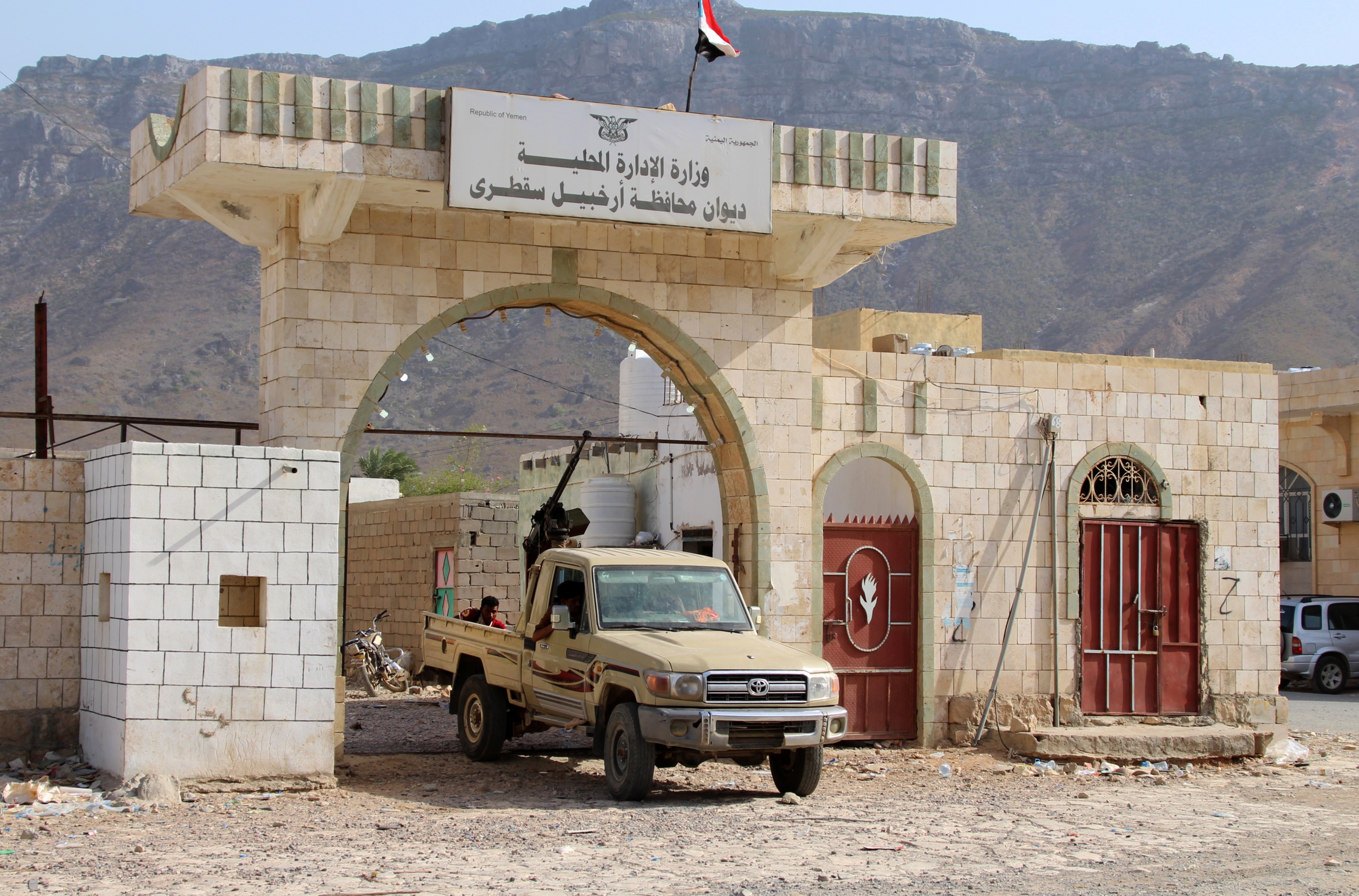
Yemen's southern separatists have begun expelling northerners from Socotra after their forces fully captured the Arabian Sea island on Friday.
Following fierce clashes between the fighters of the Southern Transitional Council (STC) and forces loyal to exiled Prime Minister Abd Rabbuh Mansour Hadi, the latter abandoned the island.
Despite having a military base only a few kilometres from the island's security office, Saudi Arabia did not intervene to end the clashes, but sheltered Socotra governor Ramzi Mahroos and some pro-Hadi leaders in the base before evacuating them.
'Socotra belongs to the south and we support our leadership'
Ahmed Mokaiber, STC supporter
Mahroos accused Saudi Arabia - which has since 2015 led a coalition targeting Houthi rebels in the country - and the United Arab Emirates (UAE) of turning a blind eye to the actions of the STC, which supports restoring the southern Yemeni state that existed between 1967 and 1990.
The UAE has been supporting the STC since it was founded in May 2017, providing air support to the STC’s forces while fighting pro-Hadi forces in the provinces of Aden and Abyan.
New MEE newsletter: Jerusalem Dispatch
Sign up to get the latest insights and analysis on Israel-Palestine, alongside Turkey Unpacked and other MEE newsletters
Hadi's government condemned Friday's actions as a “full-fledged” coup and accused STC forces of attacking government buildings with “gang-style behaviour".
Ahmed Mokaiber, a supporter of the STC in Socotra, claimed that most of the island’s residents were supporters of the STC and they are happy to see them control the island.
“On Saturday, hundreds took to the streets celebrating the liberation of Socotra,” he told Middle East Eye.
“Socotra belongs to the south and we support our leadership.”
The STC declared self-management of the south late in April and has since pushed to take over new areas in the south - not least for the purpose of securing local revenues.
Northerner expulsions
After capturing Socotra, the STC announced an amnesty to all their opponents on the island and in the southern provinces - however, this amnesty did not extend to northern Yemenis.
On Sunday, the STC’s forces in Socotra began to deport northerners from the island to Al-Mahrah province by boat, accusing them of being “mercenaries” working for Hadi's government.
"The STC behaves as a leader and not a gang - so our leaders granted amnesty to all southern people who fought the STC in Socotra, but they can’t grant that to mercenaries from northern provinces," said Mokaiber.
“All the exiled northerners fought the STC in Socotra so it was the least of punishments to exile them," he added, pointing out that the STC had not enacted harsher penalties such as execution.
“In 2015, we saw the resistance and the Houthis execute their opponents but we are not slaughterers. We are civilians who want to get back our country.”
However, other residents of the island dispute this narrative, claiming the move is more about penalising northern Yemenis.
Ahmed, originally from Taiz and working in Socotra as an electrician, said that he knew a number of those who were expelled and they weren't mercenaries.
"That’s not true - they are labourers trying to find work in this occupied island," he told MEE.
"There are thousands of northerners working in Socotra for years and we didn’t face any problem."
'The STC’s forces don’t understand and they hate northerners'
- Ahmed, Socotra resident
He said that the arrival of UAE and Saudi-backed forces changed the atmosphere on the island. Suddenly, many of the northerners on the island were being branded "invaders" and being persecuted.
"The STC’s forces don’t understand and they hate northerners.”
Ahmed said he wasn't a supporter of Hadi or the STC but said he was sad to see the peaceful residents of Socotra joining Yemen's fighting for the sake of money.
“The UAE pays money to anyone who supports them in Socotra and its fighters promise residents to develop Socotra, so people are joining to fight with the STC, backed by the UAE, without any experience," he explained.
“I don’t know who is the invader, is it me who is a Yemeni, or the Saudi and UAE forces in the military bases?"
'Wake up Hadi'
Many Yemenis have increasingly come to the conclusion that the Saudi-led coalition has no interest in restoring Hadi to power.
Mohammed Salem, an erstwhile supporter of Hadi, said that the presence of the Saudis and the UAE in Socotra and oil-rich Al-Mahrah was clear evidence for the world that their primary interest was in looting the wealth of the country.
“The coalition destroys Yemen and we know that but what about Hadi? This man brought Saudi Arabia to destroy his country and went to sleep,” he said.
Salem was involved in fighting in Marib against the Houthis - he said Saudi air support had been largely ineffective in preventing the Houthis advance.
“We don’t depend on the air strikes or the support of the coalition as their support goes to the enemies of the government - we depend on the leadership of our army,” he said. “What we need from Hadi is to return to Yemen and end the role of the Saudi-led coalition.
“We need someone to wake up Hadi and tell him that his supposed allies are destroying the country.”
Middle East Eye delivers independent and unrivalled coverage and analysis of the Middle East, North Africa and beyond. To learn more about republishing this content and the associated fees, please fill out this form. More about MEE can be found here.


